Gigabyte Brix Pro GB-BXi7-4770R System Review
Chris Hadley / 11 years ago
Network Performance
The PassMark Advanced Network Test is designed to test the data transfer rate between two computers. One of the systems acts as the server and will sit waiting for a connection whilst the other computer acts as a client. The client connects to the server and sends data to it for the duration of the test.
The network benchmark test will work with any type of TCP/IP connection. Including Ethernet, dial up modems, ADSL, cable modems, local area networks (LAN), Wide area networks (WAN) and wireless networking (WiFi). The software has been optimized to use a minimum amount of CPU time, allowing even high speed gigabit Ethernet connections to be benchmarked.
Users have the ability to change the following test parameters.
- The IP address of the machine acting as the server and the port number used for the test to help with firewall issues.
- The size of the data block used for each send request. It is also possible to select variable sized blocks to measure performance deltas as block size increases or decreases.
- The duration of the test.
- The protocol, either TCP or UDP. The TCP protocol is when data integrity is important (Errors are corrected using data re-transmission). UDP is used with applications that are tolerant to data loss such as video streaming.
The Advanced Network Test is part of the PerformanceTest suite which can be found on the PassMark website.
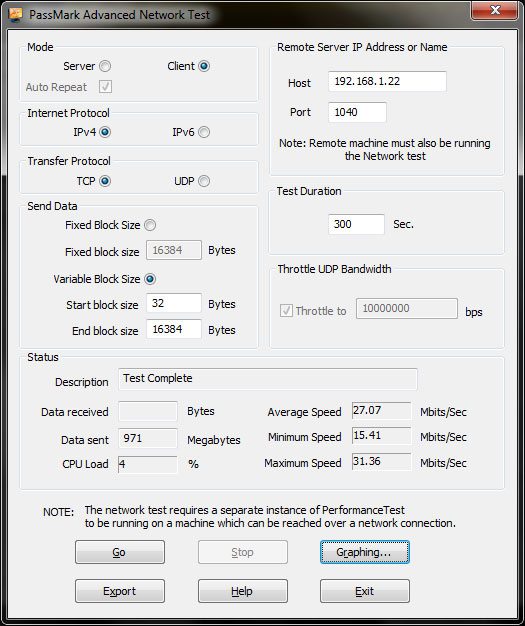
In each of our test configurations, the wireless adaptor is tested at three different ranges, the first running within 10ft of the access point(s) and with a direct line of sight. After this the laptop is moved into another room around 20ft away without a direct line of sight. Moving even further away the adaptor is placed at a range of over 40ft to push the adaptors range much further. In all situations, the adaptor is tested in an environment where the building has solid brick walls and on a segregated access point to eliminate any other wireless clients from saturating the wireless channel.
In each of the test charts, red indicates the furthest test, green the mid-range test and blue the direct line of sight. Where applicable the adaptor is tested on both the 2.4GHz band at 802.11n speeds and on the 5GHz band at 802.11ac speeds where available.
Ethernet Baseline Performance
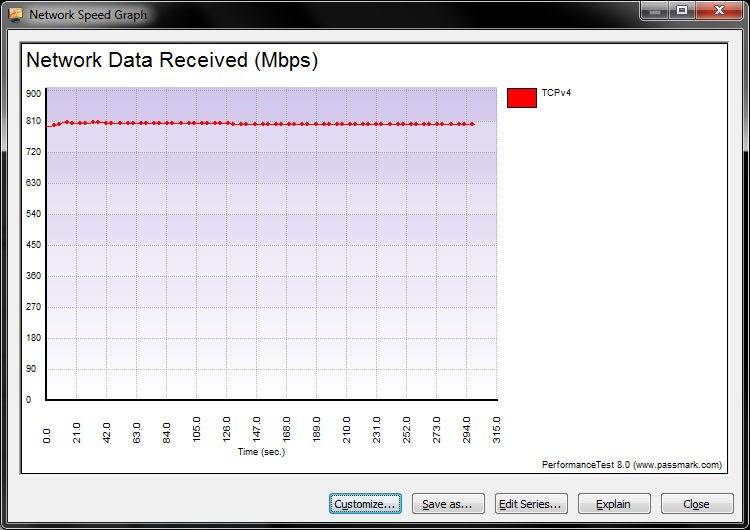
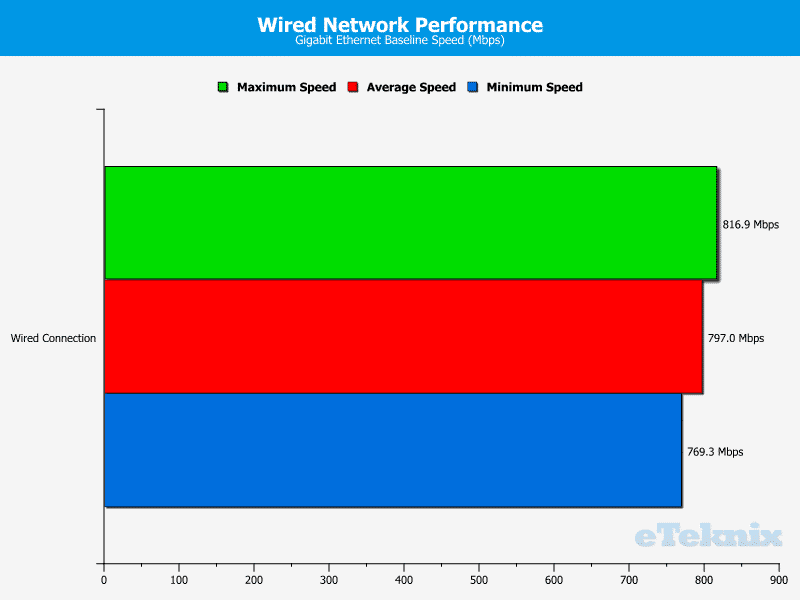
2.4GHz 802.11n Wireless Performance
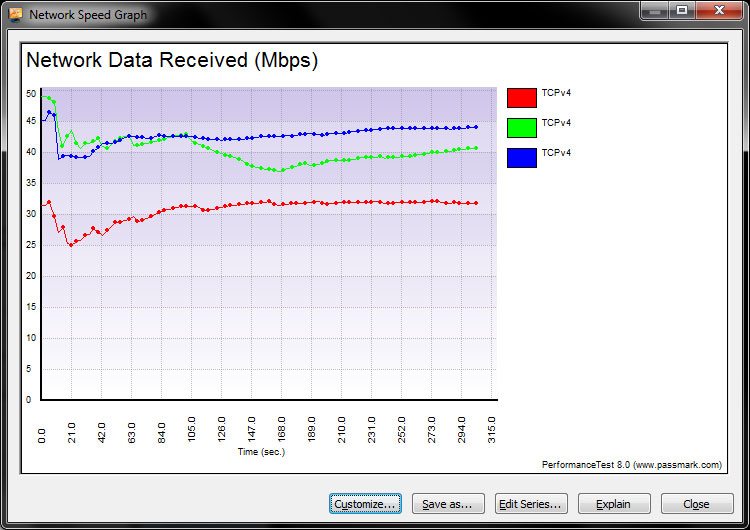
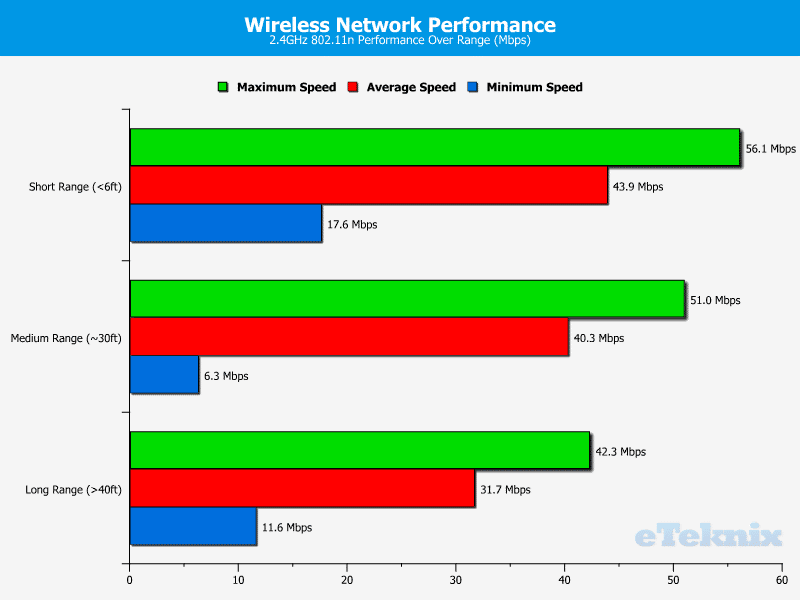
5GHz 802.11ac Wireless Performance
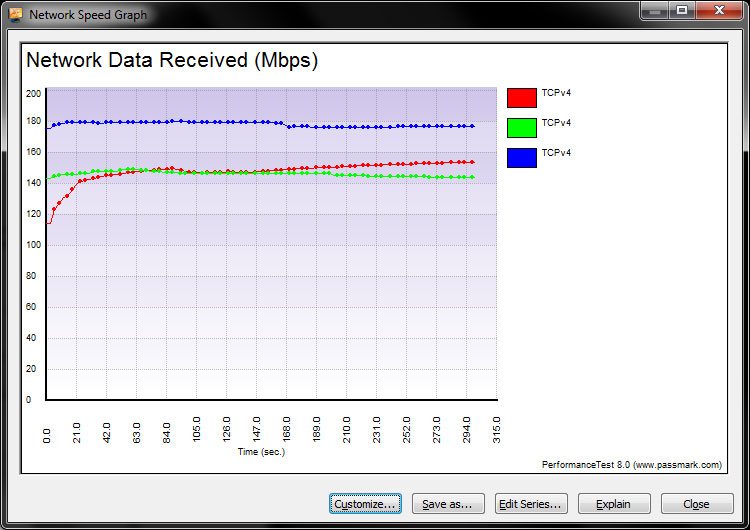
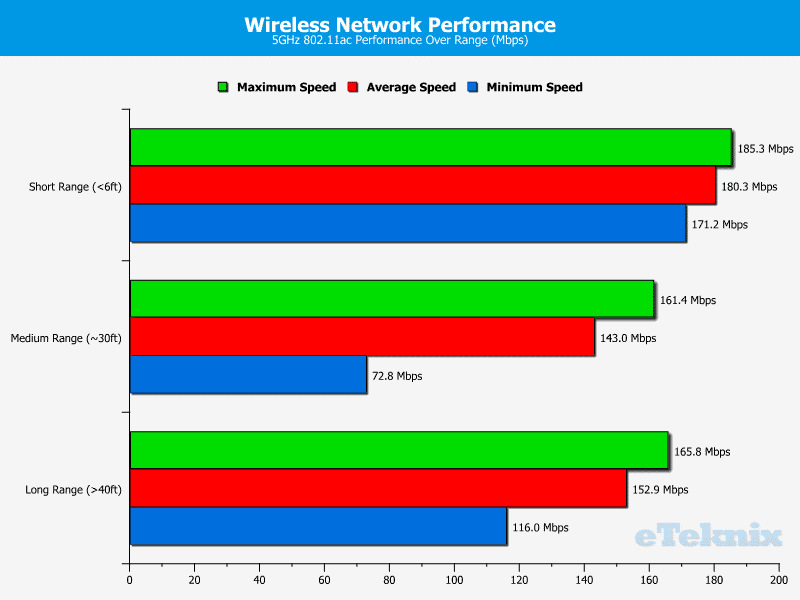
With more and more systems and motherboards these days offering up wireless connectivity, it’s only fit that we test to see how each system performs when placed out in the field. With our Brix Pro only having a small set of wireless antennae we are not expecting to get blistering connection speeds and consequent throughput speeds, but overall the AzureWave wireless NIC is more than acceptable for the purpose. With the range between the Brix Pro and the wireless access point we do see a gradual drop in performance but not as much as expected.



















